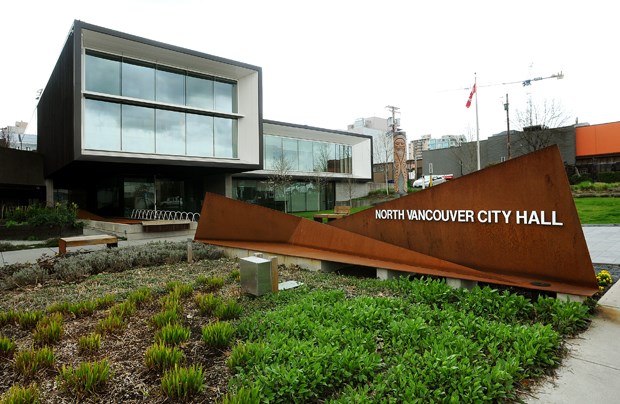City of North Vancouver council has approved a tax increase of 2.5 per cent for residential taxpayers.
Council voted unanimously Monday on the tax rates for 2018, following a discussion on how to spread the tax increases between residential and business taxpayers a week earlier.
While some council members voiced concern for struggling small businesses at that meeting April 16, they voted in favour of spreading the tax increase equally between residential and business taxpayers.
Not everyone’s tax increase will be the same, however.
As Ben Themens, director of finance for the city, pointed out, condo owners will see their taxes go up by a higher percentage than single family homeowners this year, due to the fast-rising property assessments of condominiums.
Staff had original proposed a tax increase of 1.5 per cent.
But Coun. Pam Bookham asked that another one per cent be added in order to sock away money towards development of the new Harry Jerome recreation centre “given that we are so committed to move forward on that.”
Coun. Don Bell supported that move.
“I think that’s a wise investment on behalf of the taxpayers,” he said.
Themens noted the city has been putting aside about $2.1 million per year towards paying for a new Harry Jerome rec centre, so that the municipality will be able to borrow about $40 million towards the project and pay back the principal and interest without having to raise taxes. Adding another one per cent to the tax increase means the city will set aside about $2.6 million for that purpose in 2018.
Coun. Linda Buchanan voiced concerns about that. “I do have some concerns about the financing of that entire project,” she said, adding she wanted to have a “more robust conversation with the community before we go asking them for more money.”
During public discussion of the tax rates, chartered accountants Shari Lazlo and Jeff Murl questioned the city’s contention that the municipality’s taxes are lower than those of neighbouring districts of North Vancouver and West Vancouver and in the middle of municipalities across the region.
They presented graphs showing the city mill rate – on which taxes are based – is actually higher than that of the district.
“There was a time when the city could claim their tax rates were lower than the district but now that time has passed,” said Murl.
Lazlo said it’s not fair for the city to compare taxes on “average assessed values” of different municipalities because those assessments differ significantly. Lazlo said if someone owned a $1-million home in any of the three North Shore municipalities, their taxes in the city would be higher.
But Coun. Craig Keating said that’s not a fair comparison as the city has made a practice of setting aside money for needed infrastructure projects while other municipalities fund those by going into debt. “We have paid as we went and built up surpluses for the future,” he said.
Coun. Rod Clark agreed. “I think there are lots of devils in the details with respect to the finances of the city versus the district,” he said. “Regrettably we’re going to be hearing a lot about that in the next short while.”



